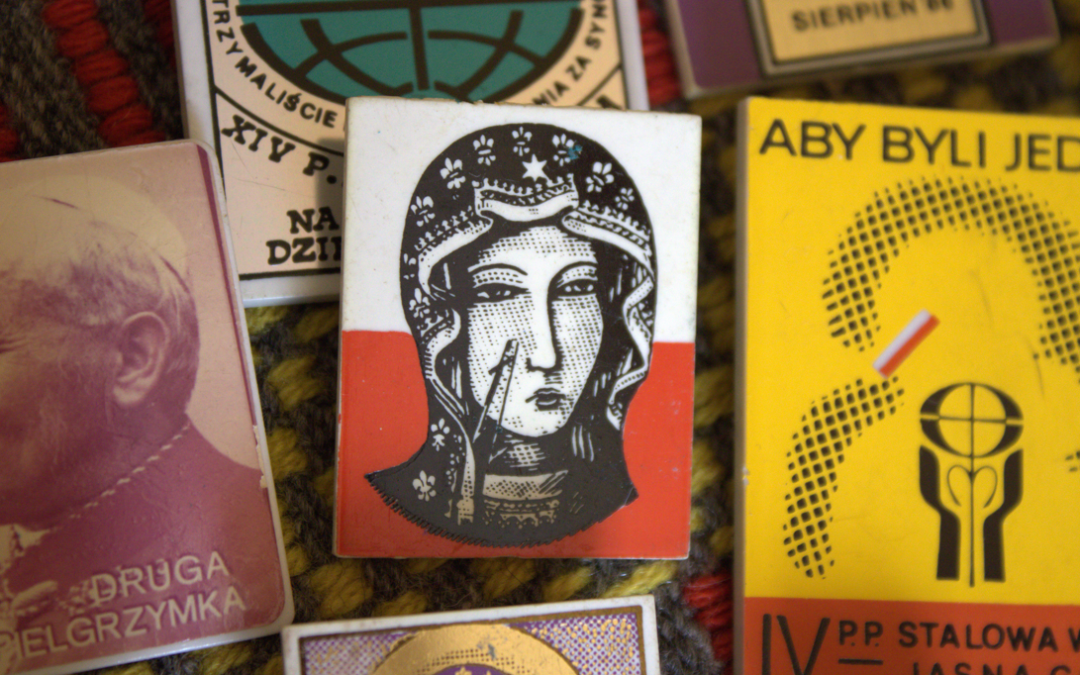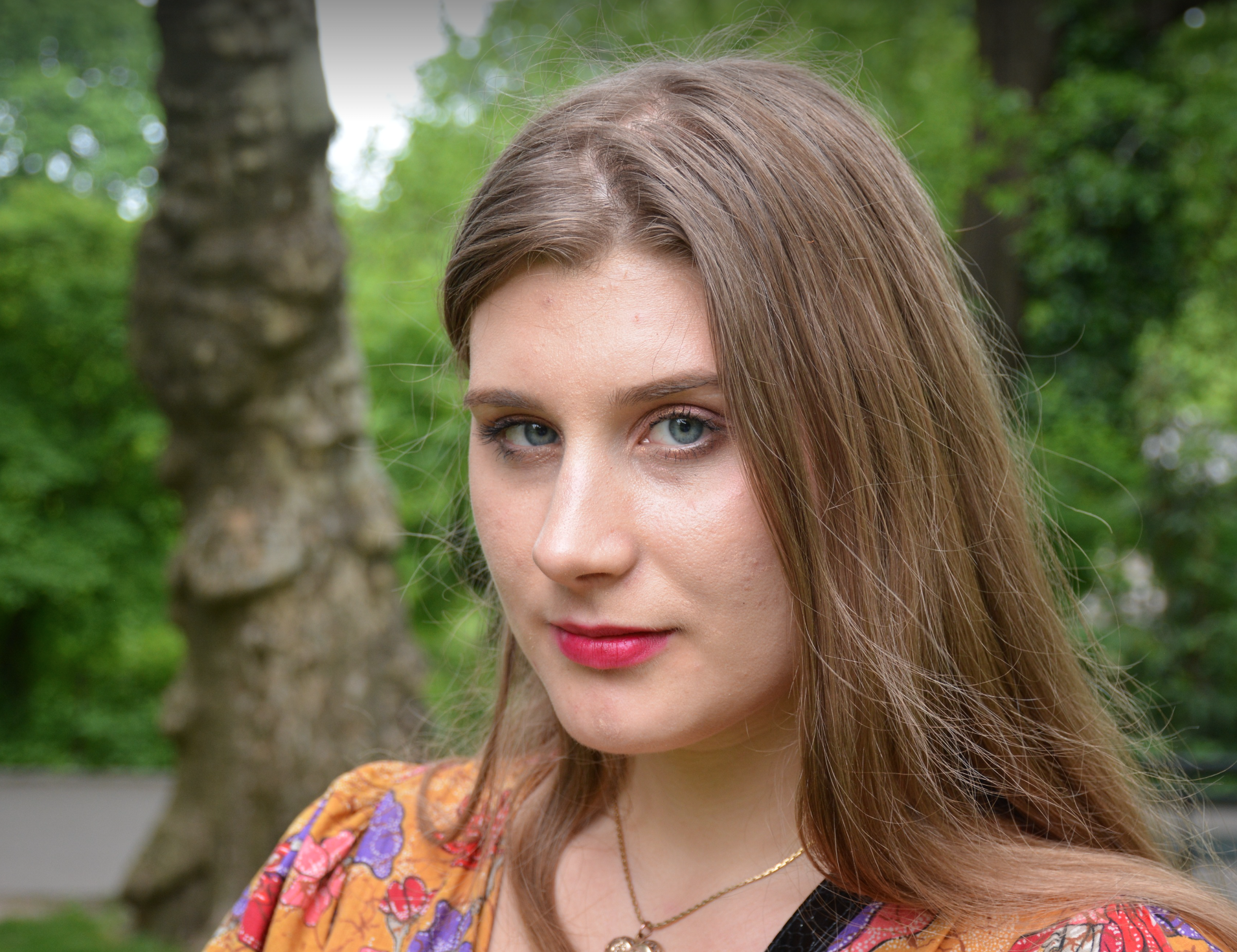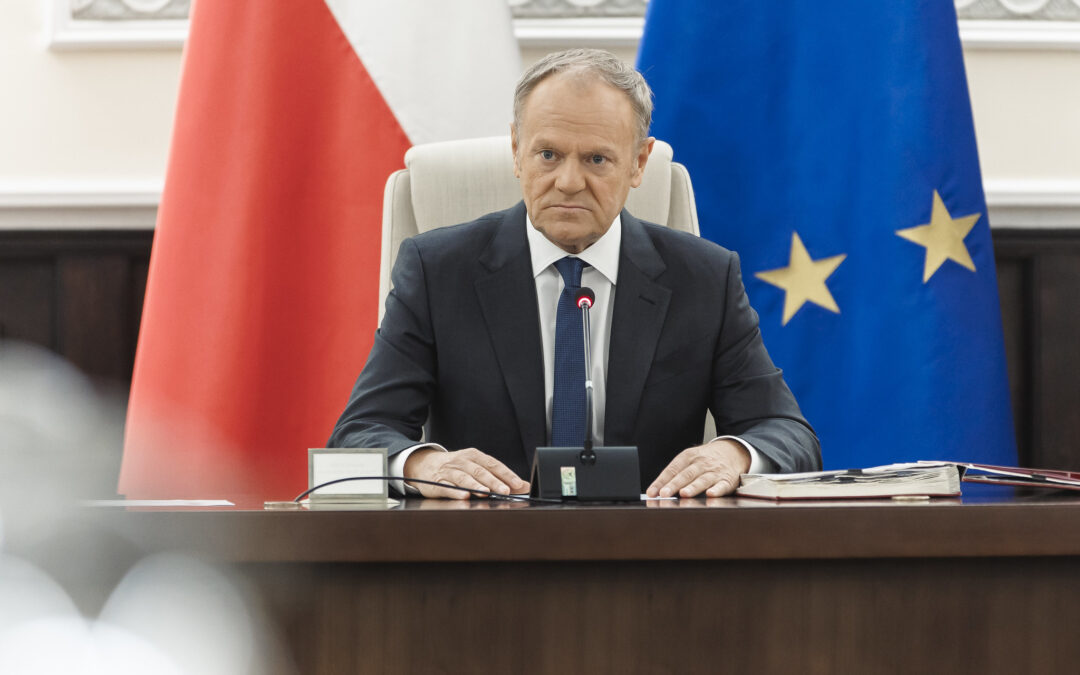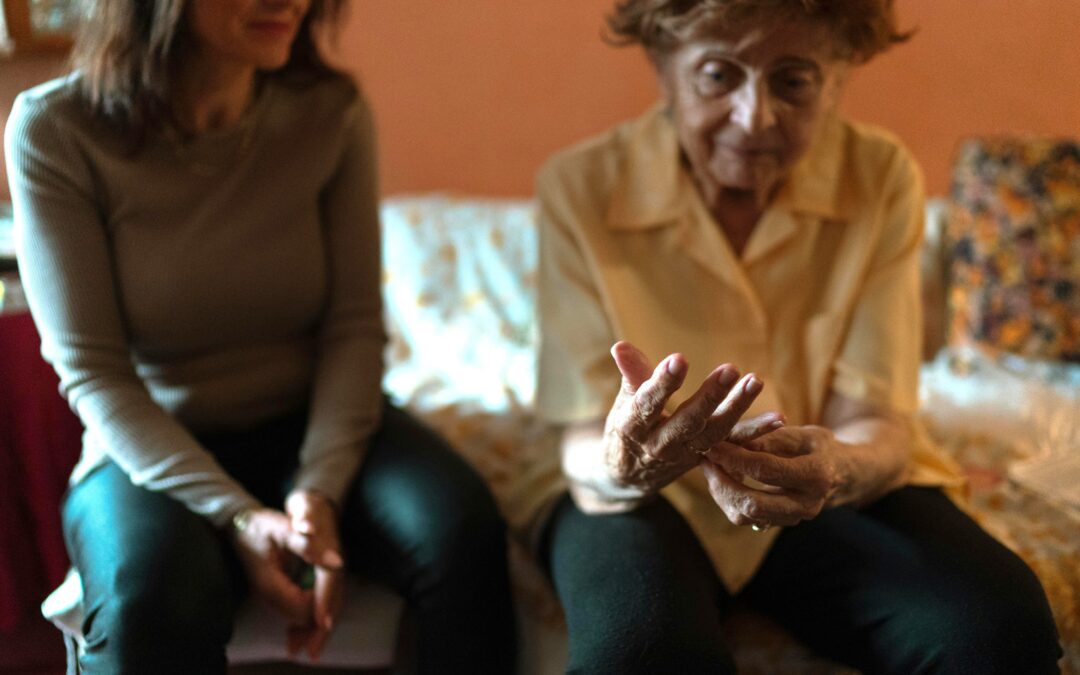By Katarzyna Maria Skiba
As Poles move away from the church – in particular the urban young, but also some older believers in the Catholic small-town heartlands – a deeply religious country wrestles with its own identity.
The Black Madonna of Częstochowa looks a lot like other eastern religious icons, with its deep golden haloes and sombre colour palette. But the painting, whose origin is still unknown, has come to represent not only Catholicism in Poland, but also Polish national pride.
Each year, more than 120,000 pilgrims make the journey to the shrine to pay homage to an image once described as the “Queen of Poland”.
In the late 1980s, the face of the Black Madonna appeared on Solidarity leader Lech Wałęsa’s lapel. Pilgrims risked their lives to travel on foot to the monastery during the German Nazi occupation of Poland, and a rosary made from concentration camp beads is on display as one of many relics of the nation’s painful past.
An attempted robbery of the icon in 1430 left two slashes on the Virgin Mary’s face, reminding its viewers of what the icon, as well as its home country, have been through.
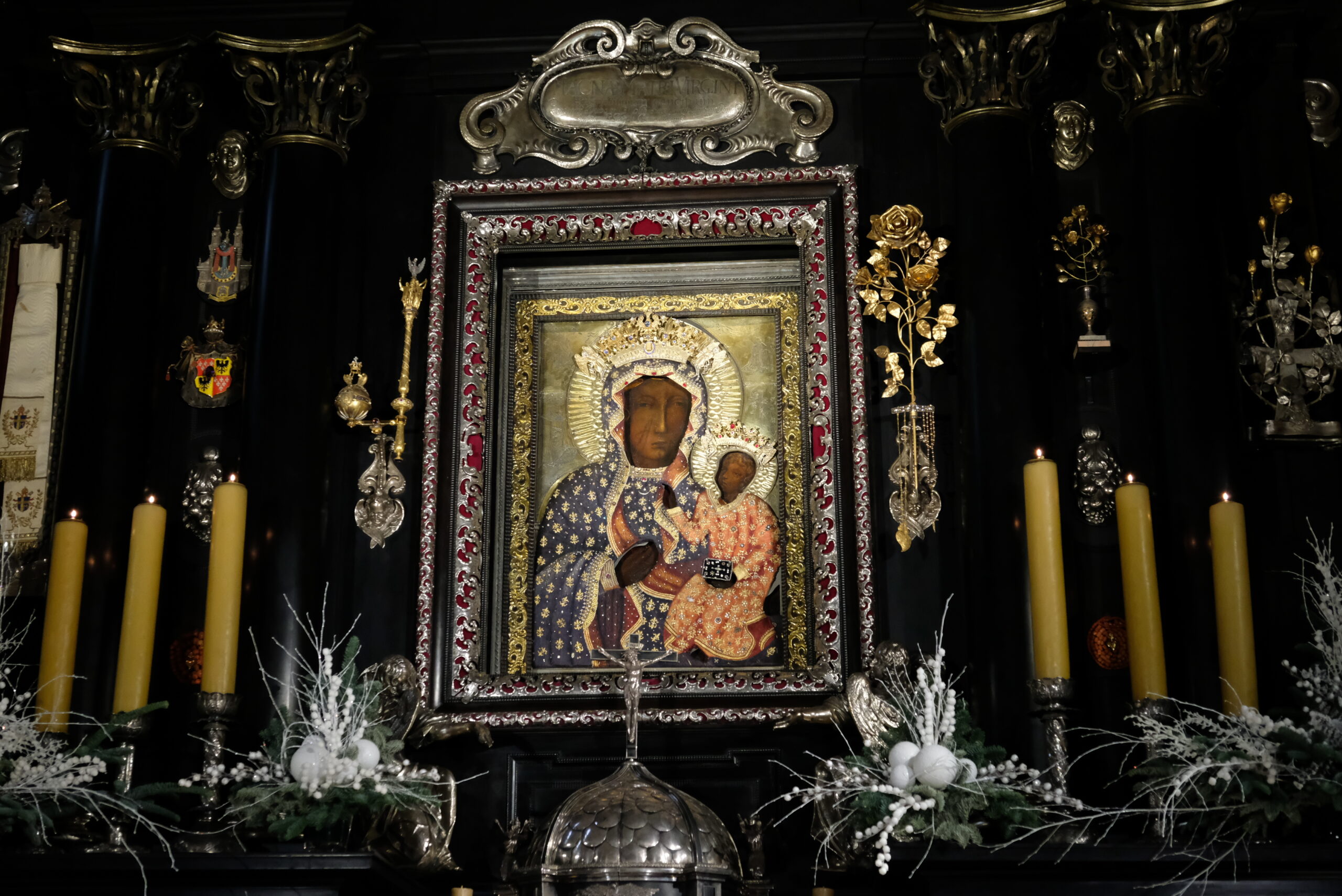
The Black Madonna of Częstochowa (credit: Kancelaria Sejmu/Krzysztof Kurek, under CC BY 2.0)
For Renata Zabłocka, 49, raised in a Catholic family in small-town southeastern Poland, the church was the centre of public life. “Everything revolved around the church,” she says – cultural events, social life and shared values.
But now she has stopped attending weekly mass on Sundays, even though she still describes herself as a believer in God. She says she felt “forgotten and “judged” by the church, which used to be her main mechanism of support, after she divorced her husband of 20 years last year.
“When I needed help, no one came to check if I was okay,” she says. “I can’t say that I’m no longer faithful, but my thinking on certain issues has changed.”
In the past few years, Poland has been experiencing increasing scepticism towards the Catholic church. That phenomenon is most visible among the young and in big cities. According to data from CBOS, a state research agency, today less than 25% of young Poles regularly practice their religion, down from around 70% in the early 1990s.
There has been a “devastating” decline in religious practice among young Poles, says the Primate of Poland
He cites the church's failure to deal with sex abuse as a primary cause, but another archbishop blames the pandemic and children's use of technology https://t.co/ZzuUj5eOaQ
— Notes from Poland 🇵🇱 (@notesfrompoland) January 3, 2022
“In big cities like Warsaw, church attendance is around 20% of what it once was”, says Franciszek Mróz, a professor of geography at the Pedagogical University of Kraków specialising in religious tourism. But he also notes that, even in small villages, that figure is around 80%, indicating a decline in conservative rural areas.
However, falling involvement with the Catholic church as an institution does not necessarily mean that Poles are losing their faith in God.
CBOS data show that, among all Poles, weekly religious practice has declined from almost 70% in the early 1990s to 42% now. The church’s own figures tell a similar story.
However, over the same period, the proportion describing themselves as religious believers only fell from 94% to 84%. An international survey by the Pew Research Center in 2020 found 69% of Poles saying that God plays an important role in their life, compared to 60% of Italians and 31% of French people.
Almost 70% of Poles say God plays an important role in their lives, the second highest figure in the EU
New @pewresearch data show that religious belief remains strong in Poland but is in decline, and is more closely tied to political views than elsewhere https://t.co/bUh8hOjgfV
— Notes from Poland 🇵🇱 (@notesfrompoland) July 24, 2020
“I see many of my former students who only go to church on holidays, or to receive the sacrament of confirmation”, said Paweł Dziadkowiec, who used to teach Catholic catechism classes in southern Poland.
Dziadkowiec, who has a degree in theology, started teaching in the 1990s, when catechism classes had just entered public schools. This was the result of the concordat between Poland and the Holy See, which provides certain privileges to the Catholic church.
Although the Polish constitution is secular, the concordat acknowledges the close relationship between the Catholic church and the state, and provides for Catholic religious education hosted and funded by public schools.
Częstochowa has become the first city in Poland to call for the end of municipal funding for Catholic catechism classes, which are hosted and financed by public schools but with teachers and curriculums chosen by the church https://t.co/ixKPQQw6uW
— Notes from Poland 🇵🇱 (@notesfrompoland) December 16, 2022
Though these classes are technically voluntary, many, especially in small provincial towns, admit that while growing up they were “de facto mandatory”.
“Even if their parents were not religious believers,” says Magdalena, 23, a law student from a religious family who has decided to leave the church (and asked for her surname not to be published).
“The kids who didn’t go to religion classes were looked down upon,” adds Magdalena, who says this even affected the grades students received in school.
The majority of schoolchildren in Poland still attend the classes, but numbers have been falling rapidly in recent years as young people – and often their parents – increasingly question a church that they see as out of touch with the modern world.
The proportion of students attending Catholic catechism classes in Warsaw high schools has fallen to 29%, down from 44% three years ago.
Meanwhile, the archbishop of Łódź and a spokesman for Wrocław curia admit the church is seeing a "wave of apostasies" https://t.co/tOf3EuHFMj
— Notes from Poland 🇵🇱 (@notesfrompoland) November 14, 2022
But this staunch traditionalism remains a point of pride for many members of the Polish clergy, who view it as a symbol of the church’s purity and resoluteness in the face of outside influences.
“The church in Poland remains very traditional, there is little modernity in it, there’s no liberalism in it like there is in the churches of Western countries,” says Karol Skiera, who is studying to become a priest at the Higher Theological Seminary of the Franciscans in Kraków.
Skiera, whose brother is also a priest, wanted to pursue the priesthood as an alternative to what he considers an increasingly materialistic, shallow world. “Some people believe that freedom comes from having things, from partying, from doing whatever you want,” he says. “But true freedom comes from deep faith in God.”
A specific history
The drop in religious practice – and the rise in the number of people formally leaving the church through apostasy – has been so drastic that even the church has begun to conduct its own research to determine these causes. Most respondents surveyed by the church in 2020 said they had a “negative view” of it.
“Apostasy of course results from a lack of faith, but also a negative perception of the role of the institution of the church and its presence in the public space”, Wojciech Sadłoń, head of the Institute for Catholic Church Statistics, told news website Interia.
The number of people quitting the Catholic church in Kraków last year was more than triple the figure for 2019 and almost nine times higher than the recent annual average
The data support recent reports that record numbers are leaving the church in Poland https://t.co/hoECu6yeuL
— Notes from Poland 🇵🇱 (@notesfrompoland) March 15, 2021
This questioning of the church as an institution is especially drastic given the political and cultural weight that the church has exercised in Poland for centuries.
When Poland was a satellite state of the Soviet Union, going to church was a means of protest against the atheist communist regime. Several specialised masses and pilgrimages were staged with the intention of supporting the Polish movement for independence.
Even earlier, when Polish lands were partitioned between the Russian, Austro-Hungarian, and Prussian empires, preserving the Catholic faith was crucial for Poles as a way of maintaining their culture, language and traditions.
This strengthened the ties “between religion and Polish national identity”, writes Anna Grzymała-Busse, a political scientist at Stanford University.
Pope John Paul II's pilgrimages to his Polish homeland drew enormous crowds and inspired his compatriots in the struggle against communism.
On the centenary of his birth, we present a collection of images from his visitshttps://t.co/AGssO4jnsy
— Notes from Poland 🇵🇱 (@notesfrompoland) May 18, 2020
The historical strength of the Polish church has given many priests a large degree of power, especially at the local level.
“When I listened to the homilies, the last time I was in Poland, incognito, with no one knowing I was a priest, it was terrifying,” says Jacek Dąda, a priest born in Poland but who has lived and worked in the United States for the past 22 years. “It was as if the priest had absolute power over the people.”
Sex abuse scandals and the abortion ban
Whereas in the past church attendance was a form of protest against occupying foreign powers, now the churches themselves are often a target for protests, especially over growing revelations of child sex abuse by the clergy and the church’s support for an unpopular new near-total ban on abortion.
Most recently, the abuse scandal has even touched former Polish Pope John Paul II. His spiritual leadership and role in the downfall of communism in Poland have made him a revered figure. But new journalistic investigations into his time as archbishop of Kraków in the 1960s and 1970s have suggested he was negligent in dealing with priests he knew had abused children.
Yet while some have seen the new revelations as necessitating a reassessment of John Paul II’s legacy, many others have come to his defence.
The ruling national-conservative Law and Justice party (PiS) decried the new reports as an attack on Polish national identity and pushed through a parliamentary resolution to “defend the good name of Saint John Paul II”.
Poland’s parliament has adopted a resolution to “defend the good name of John Paul II” after a TV report suggested the late Polish pope allowed priests under his authority to continue working in the church despite knowing they had sexually abused children https://t.co/B5URQ40OAf
— Notes from Poland 🇵🇱 (@notesfrompoland) March 9, 2023
Yet regardless of attitudes towards the former pope, there is no doubt that a string of other revelations in recent years regarding child sex abuse in the Polish church and alleged coverups by the Catholic hierarchy have seriously undermined faith in the institution.
In 2021, the church was rocked when two senior hierarchs, former archbishop of Gdańsk Sławoj Leszek Głódź and former bishop of Kalisz Edward Janiak, were disciplined by the Vatican for covering up abuse. Other Polish bishops have since faced similar action from the Holy See.
Trust in the Catholic church fell from 58% in 2016 to 44% last year, according to regular polling by IBRiS.
Poland's most trusted institutions are NATO, the army and EU; the least trusted are government, state media and constitutional court (TK).
The biggest rises in trust since 2016 have been for NATO and EU; the biggest declines for the Catholic church and TK https://t.co/NnRCdDfsJi
— Notes from Poland 🇵🇱 (@notesfrompoland) June 9, 2022
While defenders of the church note that only a small minority of priests have been guilty of abuse, critics argue that the structure and culture of the church are also to blame.
“This system, in which power is exercised by uncontrollable and irrevocable popes and bishops, in which no one has control over finances, in which promotions are arbitrary and not related to competence, will always generate pathology”, says Artur Nowak, a survivor of sexual abuse by two priests and who has worked with other victims.
Many of them sought him out for help after he appeared in two documentaries about the issue. “When I saw the wall of opposition they were met with, I decided that I no longer wanted anything to do with the church”, he says.
Despite all of his suffering, for Nowak leaving the faith was still not easy. “It was a process similar to loss and mourning: shock, disbelief,” he says.
Church and state
But perhaps even more than the abuse revelations, the reputation of the church has been hit by its close relations with the current ruling party and, in particular, its support for the near neat-total ban on abortion that is opposed by the vast majority of Poles.
In 2020, when hundreds of thousands took to the streets to protest the ban, their anger was directed against not only the constitutional court that passed the ruling introducing it and the ruling PiS party seen as being behind the decision, but also against the church.
This broke a long-standing taboo among many Poles against directly challenging the Catholic church, one of the most powerful institutions in Poland. A widely shared video of teenage girls verbally confronting a priest exemplified this new change.
Piotr Roszak, a priest and theologian currently teaching at Nicolaus Copernicus University in Toruń, says that he wants “dialogue” to help “channel these social processes”. But “the means of protest make it difficult for this dialogue to take place” and “doesn’t leave many opportunities for discussion”.
The protestors argue that the church and many of the faithful are equally opposed to civil discussion. “There are always those who consider their religion a sufficient justification for hatred,” says Magdalena, the law student. “There is no shortage of such people in Poland.”
PiS figures, meanwhile, defend the strong ties between the state and the church. “Christianity is part of our national identity. The church was and is a preacher and possessor of the only system of values fully known in Poland,” said the party’s powerful chairman, Jarosław Kaczyński, in 2019. “Beyond the church, there is only nihilism.”
Those protesting against an anti-abortion ruling are seeking "to destroy Poland" and "end the history of the Polish nation", warns Jarosław Kaczyński.
He calls on supporters of his ruling PiS party to stand in defence of churches against the demonstrators https://t.co/KksHOREVpr
— Notes from Poland 🇵🇱 (@notesfrompoland) October 27, 2020
However, not all members of the clergy are happy with such close ties. “For me, politics and the church should be two separate paths”, says Skiera, the trainee priest. “The church intends to reach out to everyone faithful, whatever their political parties.”
Skiera is not alone. A 2021 survey found that 82% of Poles believe that the church should remain neutral in political matters, up from 63% in 2017.
A new way forward?
“I wouldn’t necessarily say that the church has to adapt itself to the times, but it can take in some ideas that will make it easier to reach a greater number of people,” says Dąda, the Polish-born, US-based priest.
He wants the church to make greater use of social media and other digital platforms to connect with younger audiences, but also advocates a shift in attitude among church leadership.
A priest has racked up millions of views on TikTok after posting videos dancing with his Catholic catechism students at a high school in Poland.
"I want to show that the church is not so rigid, that it radiates positive energy and is attractive" https://t.co/lM3MzmOiHZ
— Notes from Poland 🇵🇱 (@notesfrompoland) December 13, 2022
“Priests should above all, try and direct people towards the teachings of the church, rather than scaring them away,” he says, arguing that they should be more welcoming of couples living together before marriage and of the LGBT community.
To many faithful, the church can play an important role in Poland at a time of increasing strife due to inflation, climate change and the war in Ukraine. And modernisation, though controversial, is what some believe is the missing link between their personal faith, which remains strong, and the distance they feel from the church.
“I hope that with the younger generations, the church will realise that it has to adapt to the times,” says Zabłocka. “If that were the case, I can see myself coming back.”
Only 9% of young Poles view the Catholic church positively while 47% have a negative opinion, finds a new poll. Among society as a whole, only 35% hold a positive view
Various polls show a trend of declining religiosity and regard for the church in Poland https://t.co/W6Mn3tVVug
— Notes from Poland 🇵🇱 (@notesfrompoland) November 16, 2020
Main image credit: Katarzyna Skiba
